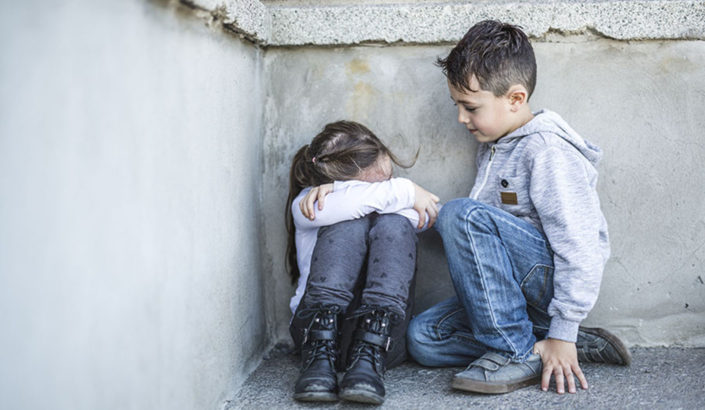What Is It?
Empathy is the quality of being in tune with the emotions of others. Sometimes the term empathy refers to the ability to imagine and understand how other people might be thinking or feeling (what researchers call cognitive empathy or perspective-taking); other times it indicates the capacity to sense others’ emotions and experience feelings that mirror theirs (referred to as emotional or affective empathy).
Though empathy alone does not guarantee positive behavior—in fact, if other social-emotional skills are lacking, empathy can be overwhelming and counterproductive—it is often considered a vital foundation of morality and prosocial (kind and helpful) action. Empathy is what enables us to extend beyond our own point of view and truly care for each other.
A student invites a new student to play with him at recess because he imagines how difficult it must be for the new student to feel comfortable at his new school.
A preschooler starts to cry when one of her classmates gets hurt because she, too, feels emotional pain at witnessing another’s distress.
Although empathy increases on average as children get older and better able to understand others’ perspectives, even toddlers under two years old can respond empathetically, showing that it is never too early to focus on cultivating empathy. In early adolescence, empathy may decrease, especially for those considered different than the self, but it tends to rebound after that.
Why Is It Important?
Because it helps students understand the perspectives, needs, and intentions of others, empathy is a building block of morality and a key ingredient of successful relationships in school and beyond.
Empathy encourages kind, helpful behavior.
- More empathetic children are more likely to show prosocial behavior, such as sharing, helping, and comforting others.
Empathy creates a safer school culture.
- Increased empathy can decrease bullying and aggression among kids and make them kinder and more inclusive toward classmates.
Empathy fosters positive student relationships.
- Children who show more empathy are more popular with their peers. (In adolescence, though, this may be more true for girls than for boys.)
Empathy leads to school success.
- Students who are empathetic are more cooperative in class, have better relationships with their teachers, and are more engaged in school.
- Students with more empathy tend to have higher GPAs and, eventually, greater success in college.
Practices

Checking Your Perspective
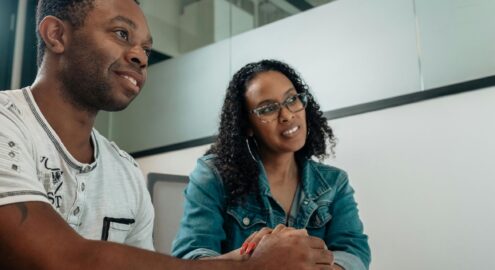
Asking Effective Interview Questions

What Kind of Happy Are You?

Asking Powerful Questions

Practicing Shallow vs. Deep Curiosity

Assessing Your School Climate
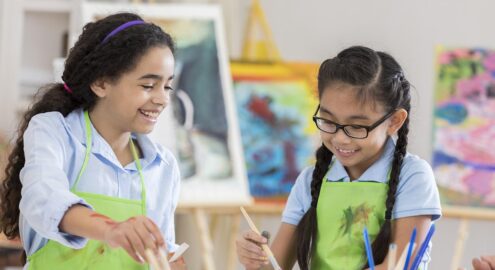
Using Art to Build Bridges

Courage Blooms
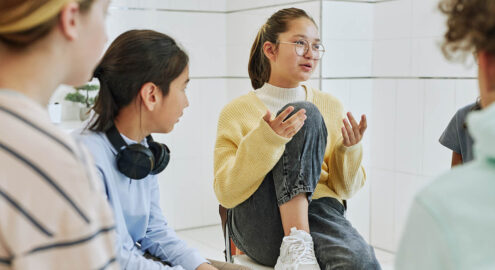
Developing the Courage to Speak Up

The Bystander’s Dilemma: What Does Courage Look Like?

Creating Musical Playlists for the Classroom

Listening and Questioning to Build Community
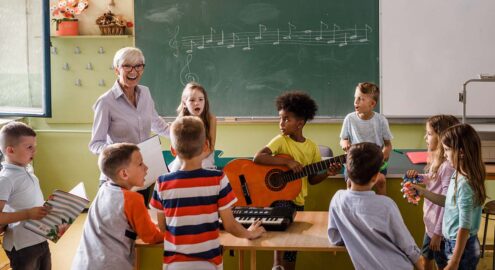
In Harmony with Sound

The Beauty of Collective Effervescence

Finding Awe In Everyday Moral Beauty

Letting Music Shape You

Listening with Compassion

Building Collaborative Classroom Norms

Do you want to dive deeper into the science behind our GGIE practices? Enroll in one of our online courses for educators!


